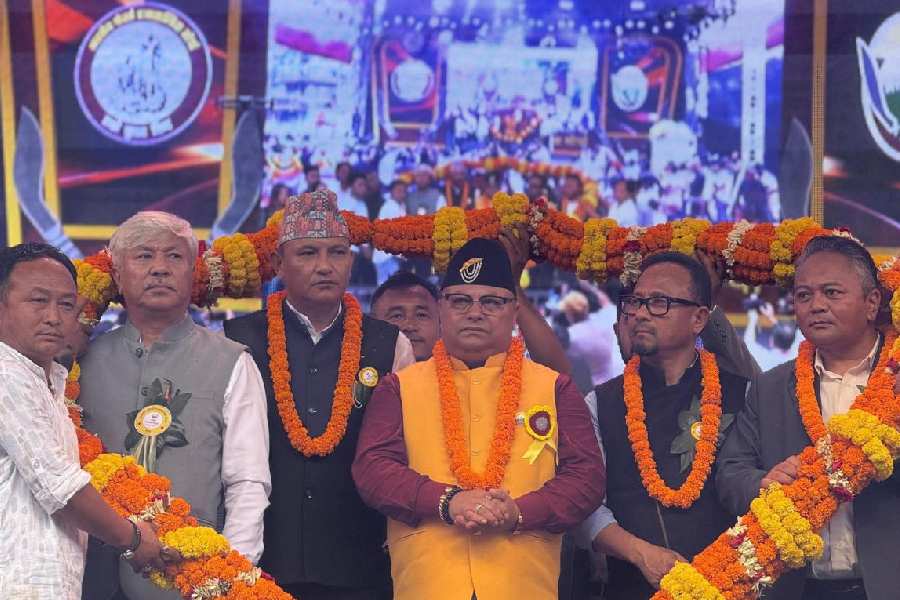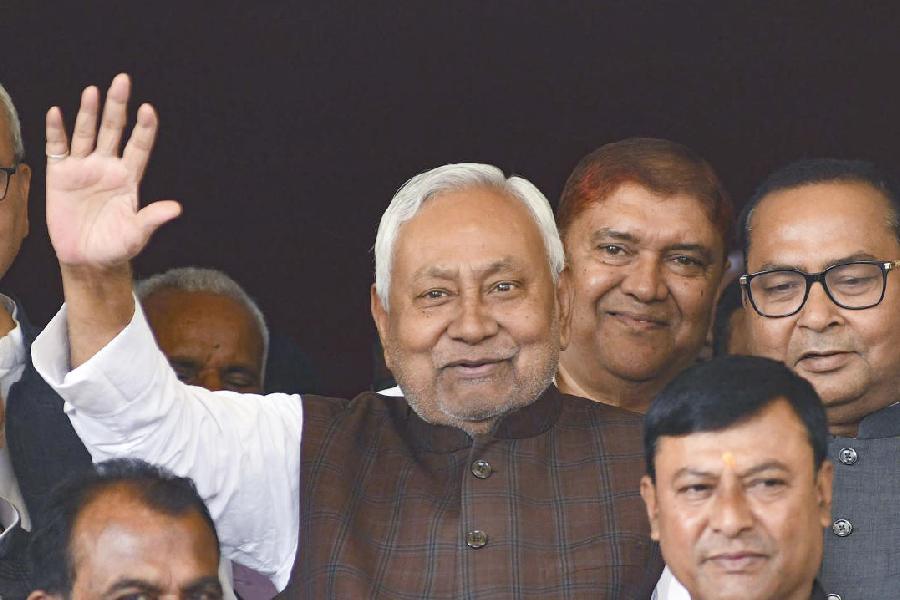Bharatiya Gorkha Prajatantrik Morcha president Anit Thapa shifted gears from development to identity on the party’s fifth foundation day on Tuesday.
Identity had been the top political issue in the Darjeeling hills until recently.
However, Thapa, who is also the chief executive of the Gorkhaland Territorial Administration (GTA) and whose party controls most panchayats and all four municipalities in the hills, had for so long relied on the development plank to strengthen the BGPM.
On Tuesday, Thapa said: “We need to unite for our community. Community unification is the most important issue now that the census is taking place across the country.”
In his 12-minute speech at the BGPM foundation day celebration at Mungpoo, which is about 30km from Darjeeling, community unification was the only major issue that Thapa spoke about.
“We are Gorkhas, Indian Gorkhas and our language is Nepali. This is what we should mention in the census,” stated Thapa.
India’s next census is scheduled to begin with a reference date of March 1, 2027, for most of the country and October 1, 2026, for snow-bound areas in Ladakh, Jammu and Kashmir, Himachal Pradesh, and Uttarakhand.
The BGPM leader even went to the extent of saying he had no issue with working with political rivals like Bimal Gurung and Ajoy Edwards on the issue of the unification
of Gorkhas.
“Every party is in its own place. During elections, we contest against each other. But when the issue of community comes, we must come together or else, we will be divided during the census,” said Thapa.
In the Gorkha community, many sub-communities have their own dialect, with some even having their own script.
Since he took control of hill politics about five years back, Thapa has openly advocated development as his main plank and has used it to justify his tie-up with the Trinamool Congress, which is in power in Bengal and opposed to the Gorkhaland movement.
On Tuesday, Thapa said that the issue of “road and water” was secondary compared to the “issue of community unification”.
The issue of identity, and thus Gorkhaland, has always been a major political plank in the hills.
“Thapa probably thinks that only development might not work for him and hence has started raising issues concerning the sentiments of the hills,” said a political observer.
The BGPM leader even directed his party to form teams to fan out to areas where Nepali-speaking people are in the majority in the country to raise awareness of the
census issue.
“Because Indian Gorkhas look to Darjeeling for guidance,” said Thapa.










